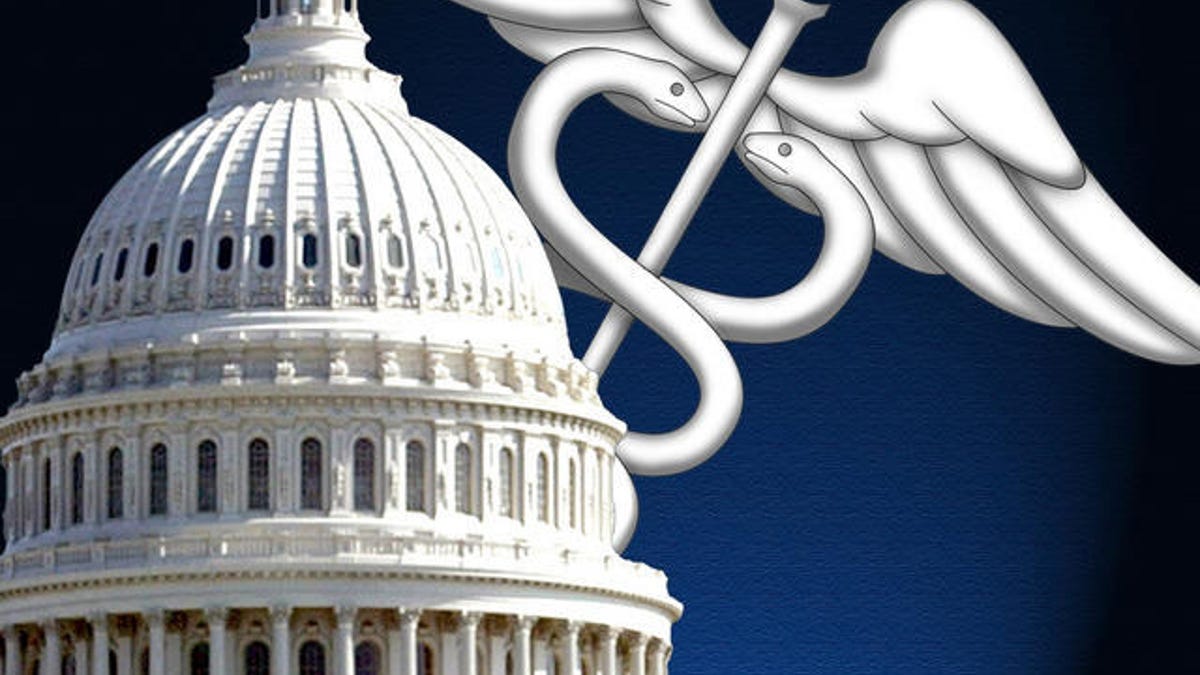
AP
Behind the scenes, a quiet and unassuming movement is afoot destined to reshape the future of American health care—and possibly the entire landscape of American politics.
The House currently has fourteen physicians. The Senate has two. This means less than 3% of our elected officials in Washington come from one of the most trusted professions in America—medicine. But that is about to change.
Rising from the ranks of my home state, three North Carolina physicians are running for Congress to address our nation’s daunting challenges. Dr. B. J. Lawson, Dr. James Taylor, and Dr. Dan Eichenbaum seek to represent the 4th, 6th, and 11th Congressional districts. Should they be elected, North Carolina would have a larger physician representation than any state in the Union—three of thirteen Congressional seats, nearly 25%. But why should America care?
In "Precepts" Hippocrates once wrote, “For if love of men is present, love of the art is also present.” In "On Breaths" he added, “The physician sees terrible things, touches what is loathsome, and from others’ misfortunes harvests troubles of his own.” For the Hippocratic physician, the well-being of the individual was of primary concern—not power, not money, not personal gain, and most assuredly, not the supremacy of the State. The Hippocratic physician was born to serve his fellow man.
But such servant leaders are in short supply in Washington today. An air of entitled aristocracy permeates our political class. Rather than guarding hard-earned taxpayer dollars with sacred trust, politicians spend with reckless abandon. Rather than leaving Washington to live under the laws they pass, most politicians cling to power for as long as possible.
Washington has become a city where pork and payoffs rule the day. Where backroom deals and buried earmarks are accepted as they way things get done. Where health care reform becomes about politics, power, and payoffs, not patient care. Americans chafe against this sad perversion of power. To reclaim our representative government, We the People must find new leadership.
Historically, practicing physicians have shunned politics—and for good reason. As we open the clinic door or push aside the emergency room curtain, our patient’s political leanings never cross our mind. Nor should they.
However, our nation now moves into complex and perilous waters. Trillions of dollars of unfunded Medicare, Medicaid, and Social Security obligations must be addressed. The exploding American debt now threatens our very independence. If our democracy is to survive, these times call for thoughtful solutions and difficult decisions. Few individuals are better suited to make these difficult decisions than the Hippocratic physician.
To save the patient the surgeon must sometimes cut to cure. To fight some cancers the oncologist must prescribe chemotherapy. Physicians must not only understand the details of a complex system and make the correct diagnosis, they must treat the illness, even if the patient does not want to hear what the physician has to say. Physicians know that alleviating symptoms does not address the disease, that more is needed however difficult.
The behavior of two prominent physician/politicians, Senators Bill Frist and Tom Coburn demonstrate the credibility of the physician statesman. In sharp contrast to today’s permanent political aristocracy, Senator Frist stepped down after achieving the position of Senate Majority Leader. Why? He had promised the voters he would serve for 12 years and no more—he kept his word. Few individuals can walk away from such power. In contrast to Washington’s common but corrupt practice of earmarks, Senator Coburn has opposed wasteful spending (by both parties) so aggressively he earned the nickname Dr. No. Like Senator Frist, he too has pledged to relinquish power after 12 years of service.
In the fall of 2010, North Carolina may serve as a bell-weather state. North Carolina’s state motto, "esse quam videri"—to be, not to seem to be, distinguishes the politician from the statesman. The politician is concerned with perception; the statesman is driven by character. Voters must decide if these three physicians can be statesmen. If elected, these three men must prove that they are.
Facing overwhelming debt, we need politicians willing to make tough decisions. In dealing with a subject as complex as health care reform, we need men and women who understand how decisions in Washington impact patient care at the bedside. Americans desperately seek elected officials committed to financial responsibility, Constitutional fidelity, and the sanctity of the patient/physician relationship. Two questions remain:
1) Will such servant/leaders rise to the fore?
2) Will We the People recognize who they are and send them to Washington?
C. L. Gray, M.D., is president of Physicians for Reform.
